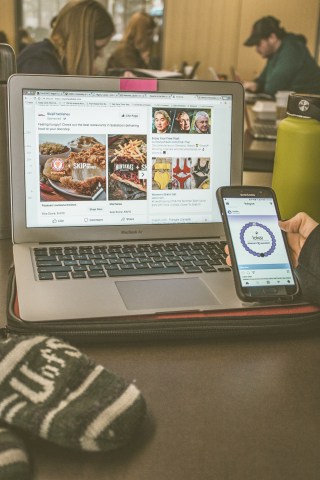
Advertisments are annoying, but are they also opportunities?
The internet’s growing dominance over the entertainment industry means that #ads and #spons are only going to increase their presence in our daily lives in the coming years, so maybe it’s time to examine whether calling content creators “sellouts” is actually fair.
In her article “Get Rich or Die Vlogging: The Sad Economics of Internet Fame,” Youtuber Gaby Dunn explains that she and her comedy partner, Allison Raskin, experience backlash when they try to make money, noting “every time [we] post a branded video … we make money but lose subscribers.”
This opposition from audiences to the commercialization of artists is nothing new, and Dunn is correct to note that “the ‘starving artist vs. sellout’ paradigm has existed since time immemorial.”
Why do we still think that poor, uncommercial artists are in some way more praiseworthy or authentic than the rest? No one asks doctors or lawyers to do their work with a complete disregard for whether or not they’ll be able to pay rent that month, so aren’t we holding artists to a ridiculous standard?
Social-media influencers are only the latest in a long history of artists having to choose between being poor and loosing their audience’s respect — and maybe they should be the last. Musician Franz Nicolay explained in an article in Slate that, before the birth of the term sellout, “the relationship between artist and patron was considered pragmatic and natural.” Which it is — artists, like everyone else, need to eat.
The romanticization of the starving artist is just as lacking in validity as the depressed artist stereotype. It seems too obvious to write, but artists don’t need to be depressed to be successful and they sure as hell don’t need to be poor for their art to be authentic.
Influencer endorsements are often criticized for being non-transparent or deceptive. Transparency has proven to be an issue — the still ambiguous laws for social-media advertising have been notably evaded by the Kardashians, for example. But, why do so many feel deceived by endorsements? After all, no one feels personally betrayed when an actor appears in a movie with product placement or as part of an advertising campaign.
Whether it’s because of the more personal content they create or because they intentionally market themselves in a direct-to-consumer way, social-media celebrities are expected to be more authentic than conventional celebrities. But, isn’t their openness the very thing that should make us more sensitive to their struggles?
Dunn’s work is wonderfully candid, making us aware of her struggles and the struggles of others in the industry. At one point, she opens up about almost quitting Youtube out of desperation, because she couldn’t pay rent and had to borrow money from her friends and her co-host.
More than ever before, we — as consumers of social media — can be an element in an artist’s daily worries about losing respect over making a living. I doubt anyone who cares about these creators enough to be concerned about their artistic integrity would want them to have to give up their art over financial concerns, so maybe it would be more productive to stop shaming artists for avoiding that scenario.
Social media has given many artists a platform on which to have conversations about this problem, and I am happy that they are using it.
From Dunn to Anna Akana’s video “Why I’m A Sell Out” to Lilly Singh’s frequent openness in her vlog channel about her need for sponsorship, creators are doing their part to dispel these dangerous myths of artistry, and I hope audiences are willing to do their part, too. Just deal with it — people got paid to sell products long before the idea of Youtube or Instagram was ever conceived.
—
Ana Cristina Camacho
Photo: Gabbie Torres
Leave a Reply